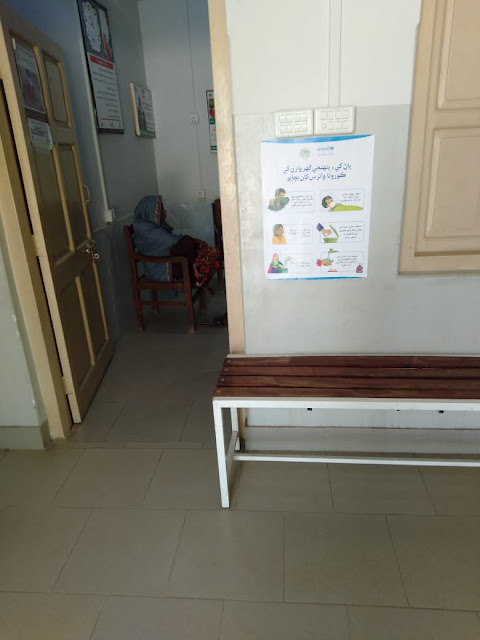As told to Navroza Sher Ali, Forum for Safe Motherhood, Pakistan, an affiliate of the global White Ribbon Alliance, by a Community Midwife in Pakistan*, as part of the Safer Together: Respectful Maternity Care and COVID-19 campaign.
In the old days, I used to take public transport to travel to and from the Rural Health Centre where I work as a Community Midwife in Nabisar, in Pakistan’s Sindh Province. However, since Pakistan’s lockdown to curb the pandemic’s death toll, all public transport has been closed. I now must arrange my own transport every day, for both going to the facility as well as for coming back home. You can imagine that this is not only very tiring and frustrating after a shift helping mothers and newborns survive pregnancy and childbirth, but also time consuming and expensive. The worst part is that, despite all the effort that I make, I am hardly ever on time. Along with so much else, I miss the regular schedule and ease of public transportation from life before the crisis.
Of course, because of COVID-19, the influx of patients into my health facility has been reduced, as women would rather stay home, alone, than risk contracting COVID-19 while being cared for by a trained health professional. Those who do visit approach the staff with fear, afraid of getting infected from us. In fact, we, the staff, are also scared of contracting the virus from one of the visiting patients.
The reality is that we are only using gloves. We do not have proper masks to protect from the virus. Sometimes, when we run out of sanitizers and file a demand for it, it takes 2-3 days for it to arrive. The authorities are not doing enough to protect us, and the staff is not able to protect our patients or ourselves the way we need to. How can we protect others unless we are protected ourselves?
Being a Community Midwife, I realize that it is my responsibility to help others during the pandemic, but I am very afraid that I will get infected while performing my duty as I have not been provided with the necessary protective gear. This fear remains paramount in my mind while I am providing services at the facility, influencing my every interaction with all my patients. It is not safe like it was before, neither for the patients nor for us.
I am doing what I can to spread information about how to take care of yourself during this pandemic to my patients and throughout my community. I let them know that by washing their hands frequently during the day and by using hand sanitizer, they will be more protected. I tell them to not leave their homes unnecessarily and that when they do, they must practice social distancing and avoid crowded places to the maximum extent possible. I also request those visiting the facility that if any one of them experiences cough and has a temperature, then they should stay in isolation at home, use a mask, wash hands and avoid touching others, especially babies and young children.
Even with all our best efforts at the facility, I personally do not see any successful outcome so far within our community: the people in my village do not understand the severity of the pandemic and are acting the same as before the COVID-19 crisis. They go out of their homes, and often, without masks. But, what else can they do? They are poor and do not have any other option than to go out and earn a living.
*Name withheld to protect privacy

